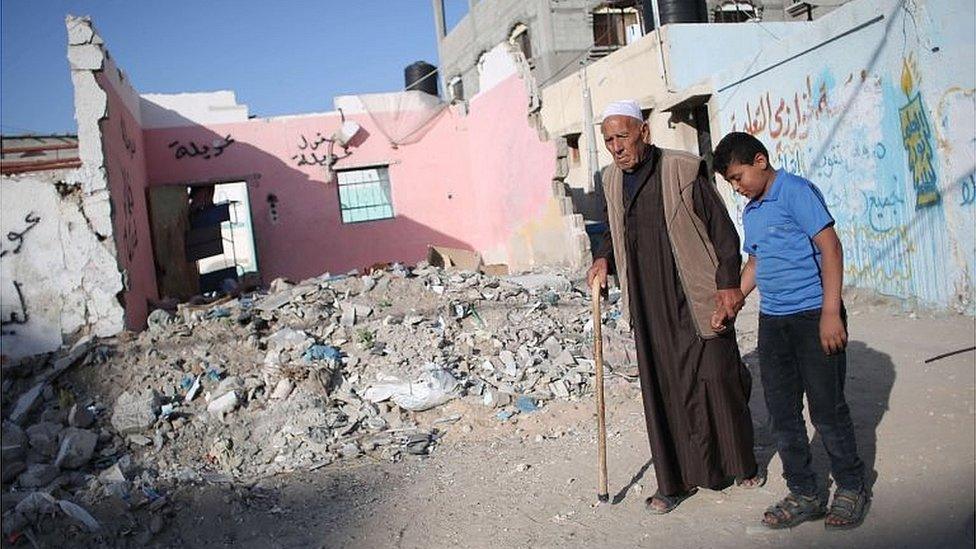Why is Gaza reconstruction so slow?
- Published
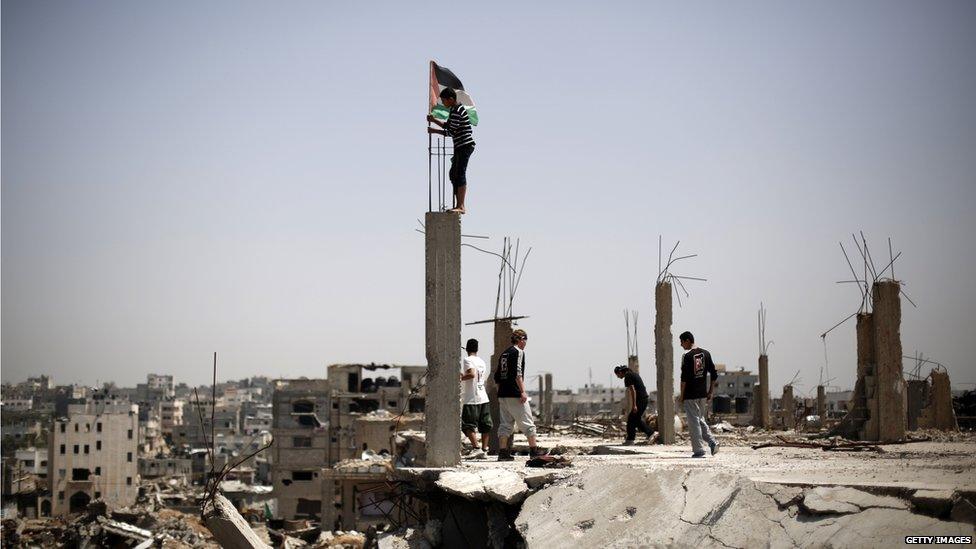
In the year since the 50-day conflict with Israel, which saw thousands of Gaza's buildings reduced to rubble, not a single destroyed home has been rebuilt.
Israel and Egypt maintain tight border restrictions on the coastal enclave, which have severely hampered reconstruction efforts. They say these are needed for security.
Although the UN brokered a deal, external to ease building material imports, progress has been slow. Over 100,000 Palestinians remain homeless.
Drone footage from June 2015 reveals some of the damage around Gaza City
Since the Islamist group, Hamas, reinforced its power in Gaza in 2007, there have been three large-scale conflicts with its sworn enemy, Israel. But the 2014 war was the most deadly and devastating.
More than 2,200 Palestinians, mostly civilians, were killed, according to the UN. On the Israeli side, 67 soldiers and six civilians were killed.
Israel said its offensive was to stop Palestinian militants firing rockets at its population and to destroy a network of tunnels designed for attacks.
About 170,000 homes and 360 factories in Gaza were damaged or lost. Key infrastructure was also hit and thousand of acres of farmland were ruined.
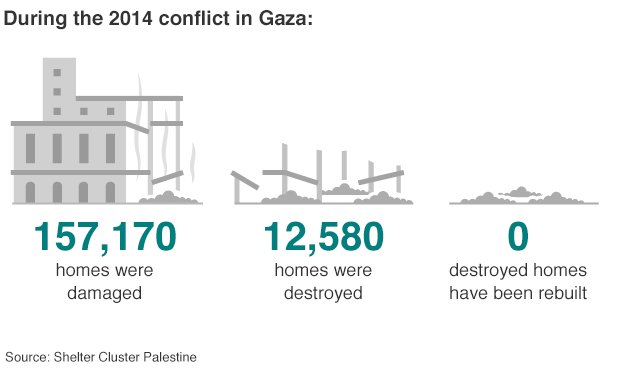
Mapping the level of destruction
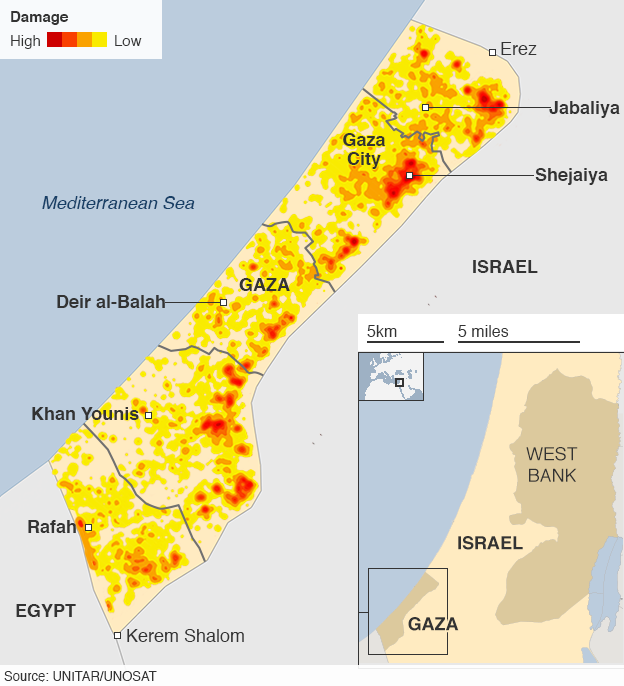

One man's struggle to rebuild
English teacher Abdul Karim Abu Ahmed lived with his wife and 11 children in a large house with a rose garden in Shejaiya, east of Gaza City.
Teacher Abdul Karim Abu Ahmed, whose home was destroyed, on the reconstruction process
They fled during the war as their neighbourhood - near the Israeli border - saw fierce fighting. When they returned they found their home was reduced to rubble.
Most of their belongings including furniture, clothes and books were destroyed.
The family now lives in a small, cramped apartment. Aid from the UN agency for Palestinian refugees, UNRWA, has helped cover rental costs.
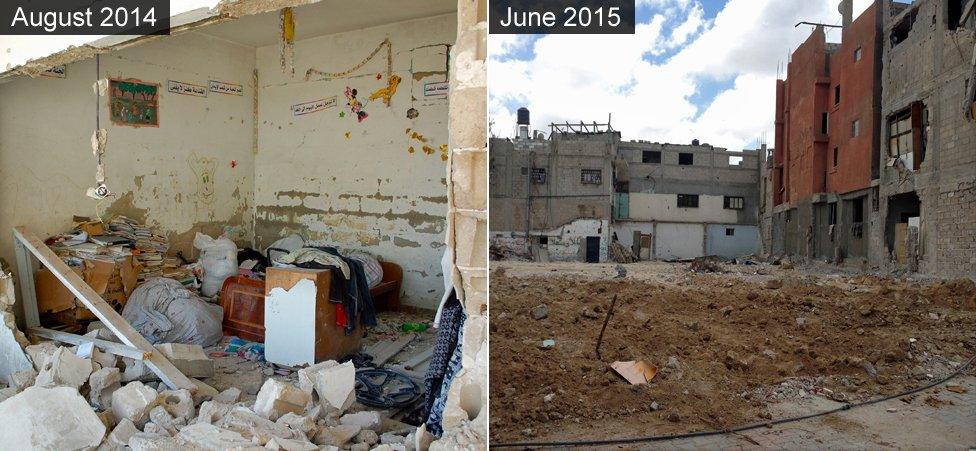
The shattered home (left) of teacher Mr Abu Ahmed has been razed to the ground (right)
There is a shortage of bulldozers in Gaza but last month, Mr Abu Ahmed was finally able to clear his plot of land. He has plans for a new house and has been promised funds donated by Qatar.
"Since the war there have been a lot of obstacles that stop us rebuilding," the teacher says. "It's been very frustrating but I have hope and try to be patient."

Call to lift blockade
Israeli restrictions prevent so-called "dual use" materials from entering Gaza. These include building supplies that could be used by militants to create new tunnels, or weapons and storage sites.
To allow reconstruction to take place the UN agreed a temporary Gaza Reconstruction Mechanism, external (GRM) with the Israeli and Palestinian governments.
This brings in aggregate, steel bars and cement (known as ABC materials) via the Kerem Shalom commercial border crossing.
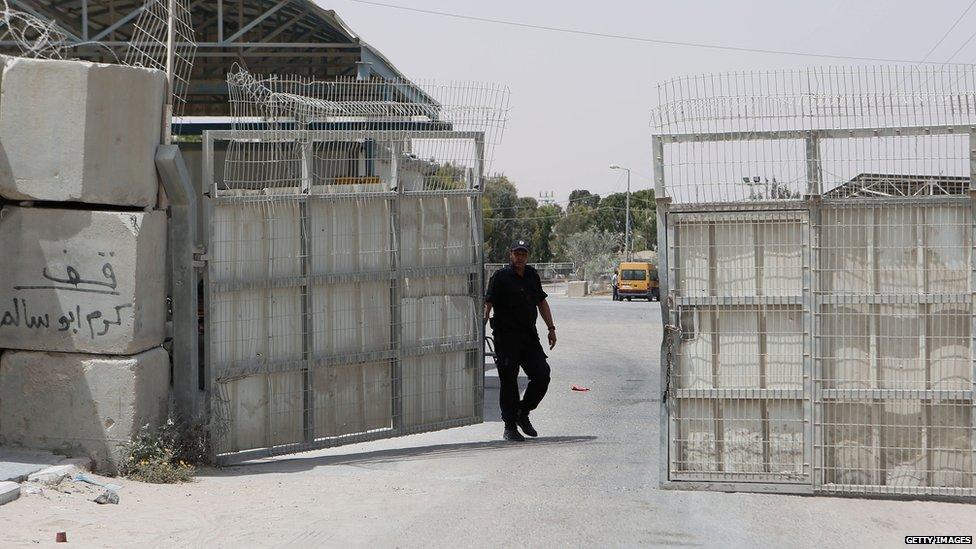
The construction materials which are allowed into Gaza must pass through Israel's Kerem Shalom border crossing
UN monitors have helped assess housing damage and needs. Full details are kept in a computer database and the Israeli military has oversight of some information.
Palestinian ministries administer lists of individuals cleared to collect materials from approved vendors. So far, about 90,000 Palestinians have been cleared to obtain supplies, mostly for small-scale repairs.
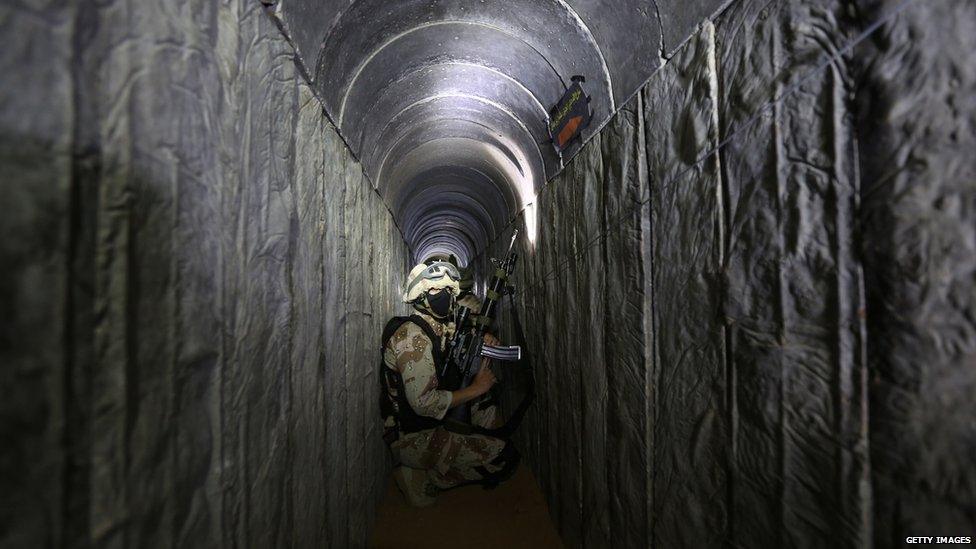
Israel controls the import of building materials to try to stop militants building tunnels, weapons and storage sites
The UN Special Co-ordinator for the Middle East, Nikolei Mladenov, says delays have been caused by the huge scale of the task and the slow flow of promised foreign aid.
Renewed divisions, external between Hamas and the Western-backed Palestinian Authority, which was meant to station its security forces at Gaza's border crossings, added to complications.
However Mr Mladenov says he is "quite hopeful" the reconstruction mechanism will show its effectiveness "in the next few months". A new process should simplify approvals for new houses.
Ultimately, the UN and international aid agencies continue to call for a lifting of the blockade. They say this is the only way to bring in all the materials needed to repair homes and infrastructure and revive the local economy.
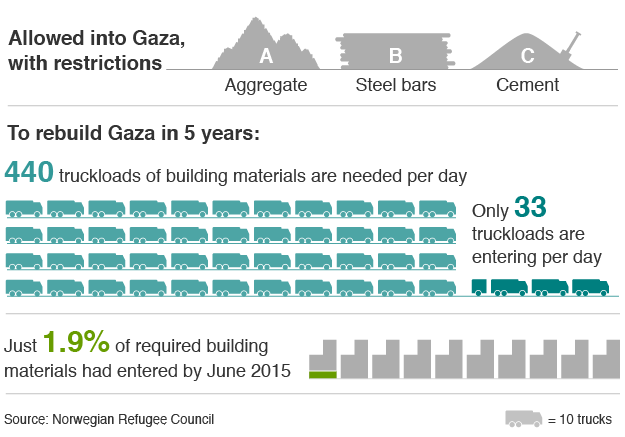
The Norwegian Refugee Council (NRC) chairs the so-called Shelter Cluster, a group of UN agencies and non-governmental organisations working on housing in Gaza.
It calculates that only 7.5% of building supplies that are needed are currently entering the Palestinian territory each day.
"If we look at the import of ABC materials just through the GRM then it will take 19 years just to reconstruct what was destroyed last year," says Vance Culbert, NRC country director for Palestine.
"If we look at the outstanding damage for previous conflicts we're up to 22 years and if you look at the overall housing shortage in Gaza then it will take 76 years."
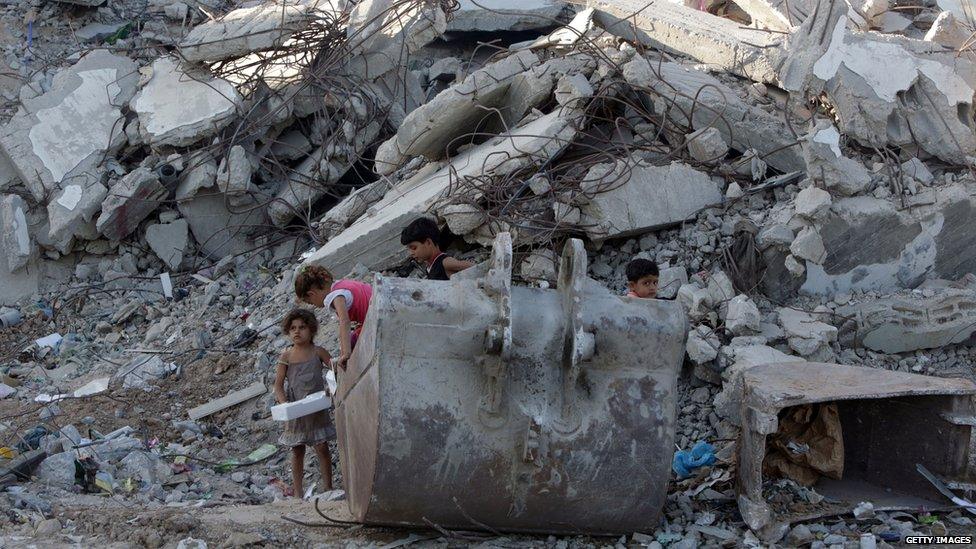
For now, homeless Gazans stay with relatives or live in overcrowded rented accommodation, donated caravans or the ruins of their properties.
There is huge frustration compounded by shortages of electricity and water and the dire economic situation, which sees 80% of the population reliant on aid.
IMF figures put unemployment at 43% and 60% among young people.
Without long-term political solutions to solve Gaza's underlying problems, many warn of social unrest, instability and the increased risk of further hostilities.
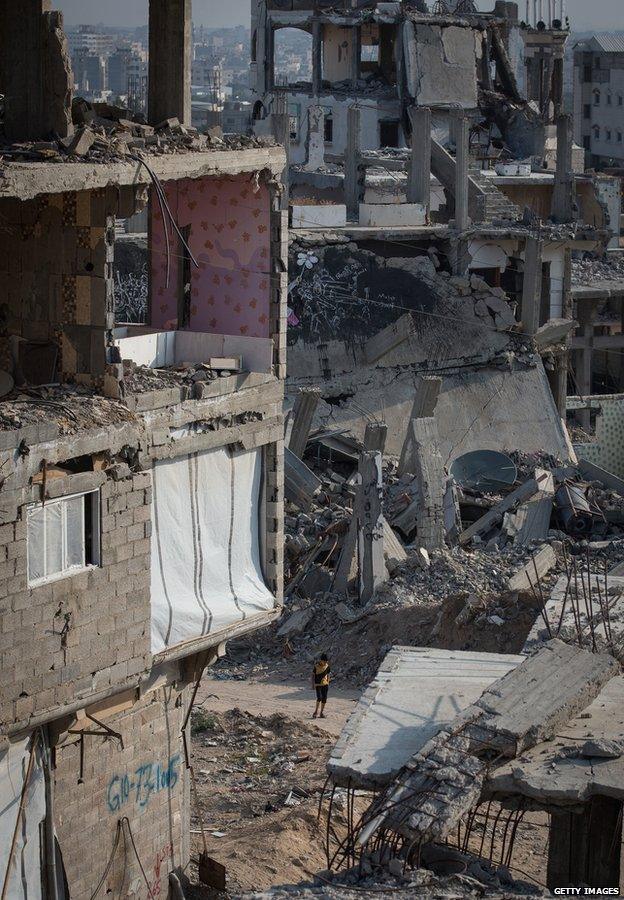
- Published22 June 2015
